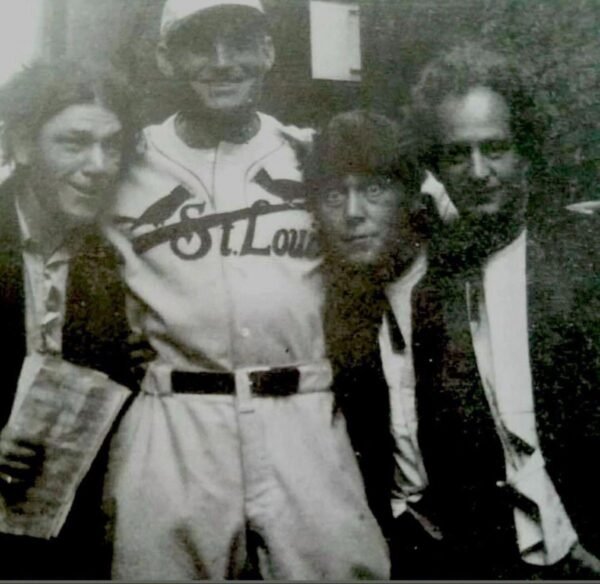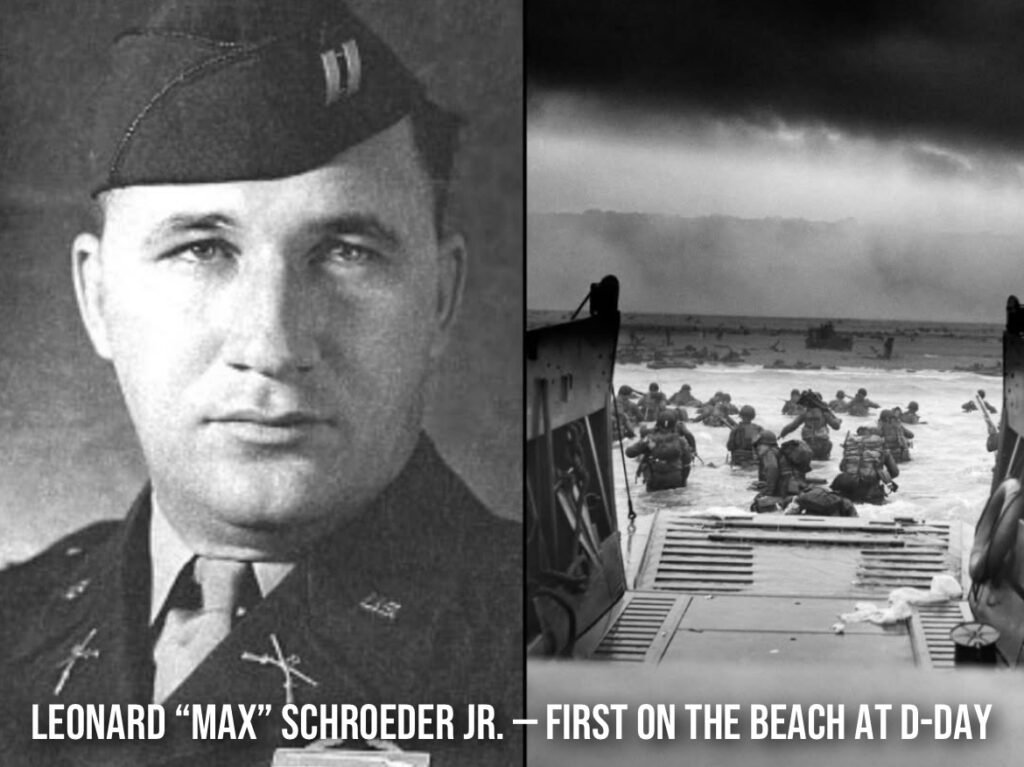
Who Was the First Allied Soldier on D-Day?
Most people have heard of D-Day. Some even know about the storming of Omaha Beach or the chaos at Pointe du Hoc. But hardly anyone knows the name Leonard “Max” Schroeder Jr. — the first Allied soldier on D-Day to set foot on the beaches of Normandy.
He wasn’t a general or a name in the headlines. He was a captain leading Company F of the 8th Infantry Regiment, 4th Infantry Division. And at 6:28 a.m. on June 6, 1944, he stepped off his landing craft and into waist-deep water at Utah Beach, making him the very first man to officially touch French soil in the greatest amphibious assault in history.
That fact stopped me in my tracks when I first learned it. We’ve heard the names Eisenhower, Patton, and even fictional characters like Saving Private Ryan. But the man who took that first step — the one who opened the path for thousands behind him — is barely ever mentioned.
Let’s fix that.
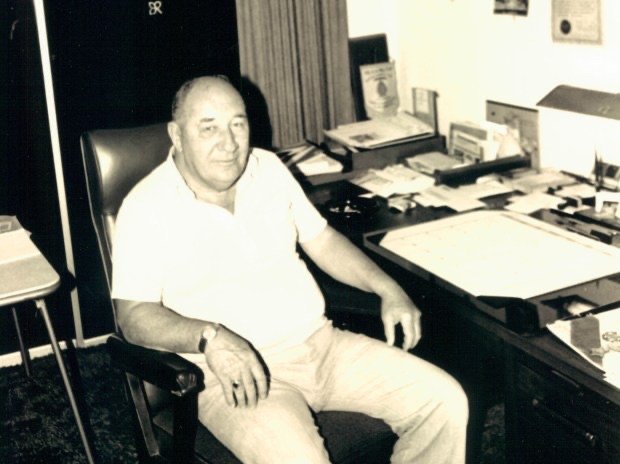
Who Was Max Schroeder Before D-Day?
Before he led soldiers into the blood-red surf of Normandy, Leonard Schroeder was just a kid from Linthicum, Maryland, born in 1918. He wasn’t flashy. He wasn’t famous. But he was sharp. He earned a spot at the United States Military Academy at West Point and graduated in 1941 — just in time to be swept into a world at war.
What always stands out to me about Schroeder is that he didn’t just show up on D-Day ready to charge the beach. He trained, prepared, and studied leadership. He knew how to command under pressure. When his unit got the call for Operation Overlord, he didn’t flinch. In fact, by the time June 6 rolled around, he’d already led his men through intense drills for amphibious assault.
And here’s the wild part — even with all that preparation, nothing could have truly readied him for what he was about to face. Yet, when the ramp of the landing craft dropped, Schroeder didn’t hesitate. He just said, “Let’s go,” and became the first Allied soldier on D-Day to hit the beach.
I’ll dive deeper into that moment next — when everything changed in a matter of seconds.
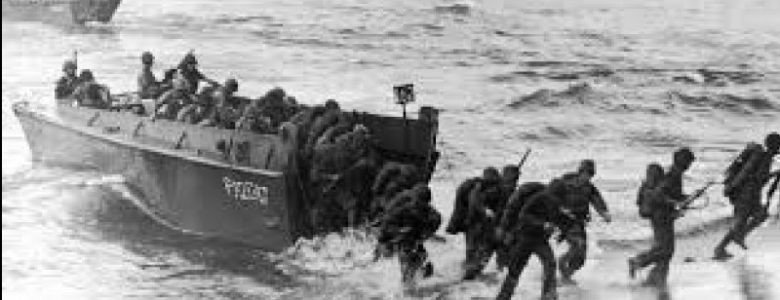
What Happened in the Moments Before He Landed?
I can only imagine what Max Schroeder was thinking as he stood inside that Higgins boat, the ramp still closed, the sound of machine guns ahead. He wasn’t watching a war movie. He was the one who would lead the charge as the first Allied soldier on D-Day, and there was no backup plan — no warmup round.
His company was assigned to Utah Beach, and he was at the front of the very first assault wave. The seas were rough that morning. Water splashed into the boat. Soldiers around him were silent, some praying, others gripping their rifles with shaking hands. Everyone knew this landing could be their last.
But not Max.
He was calm. Focused. Deadly serious.
When the ramp dropped at 6:28 a.m., he didn’t hesitate. He gave the order:
“Let’s go.”
That was it. Those two words sent the first American boots into Nazi-occupied France. No hesitation. No glory-seeking. Just duty — and the kind of courage most of us can only try to understand.
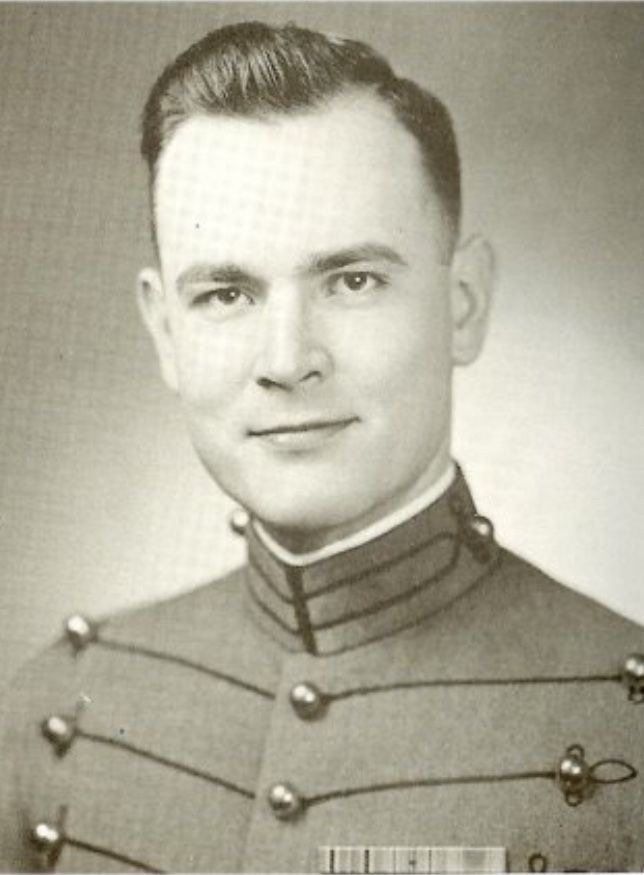
The First Steps onto Utah Beach
When Max Schroeder jumped into the cold, waist-deep water and trudged toward land, he officially became the first Allied soldier to step onto the beaches of Normandy. It wasn’t symbolic. It wasn’t planned for drama. It just happened — because he was at the front, and someone had to go first.
Enemy fire cracked around him. Mines were buried under the sand. Mortars hit the water behind him. And still, he moved. Step by step. Weapon raised. Eyes scanning.
It’s hard to wrap your head around that moment. He wasn’t following anyone else’s lead. He was the lead. Behind him, thousands of soldiers were pouring out of landing craft, hoping — praying — that someone ahead of them was making progress.
He was that someone.
Schroeder and his company began clearing the way, taking cover where they could, laying down fire. The chaos was unimaginable, but his training kicked in. He was wounded by shrapnel later that day, but never stopped leading.
His bravery was eventually recognized with the Silver Star, the Bronze Star, and the Purple Heart. But even then, his name faded quietly into the background of history.
And that’s why I’m writing this. Because we should all know the name of the man who took that first step.

What Did Schroeder Do After Landing?
After storming ashore as the first Allied soldier on D-Day, Schroeder didn’t stop. He wasn’t there just to make history — he was there to lead his men through one of the most dangerous missions of the war.
Despite the chaos on Utah Beach, Schroeder kept his company moving forward, pushing through German defenses and trying to secure their objectives. He didn’t have the luxury of celebrating survival — he had a job to do. His unit fought through minefields, machine gun nests, and confusion. And at one point, a piece of shrapnel tore into his arm, wounding him badly.
But he didn’t fall back. He refused to leave the front line. He kept giving orders, directing his men, staying focused until the beachhead was under control.
That kind of determination is rare. His leadership and bravery that day earned him a Silver Star, a Bronze Star, and a Purple Heart — three of the highest awards given for valor and sacrifice.
And yet, for a man who was first into the fire, you won’t find his name in most history books.
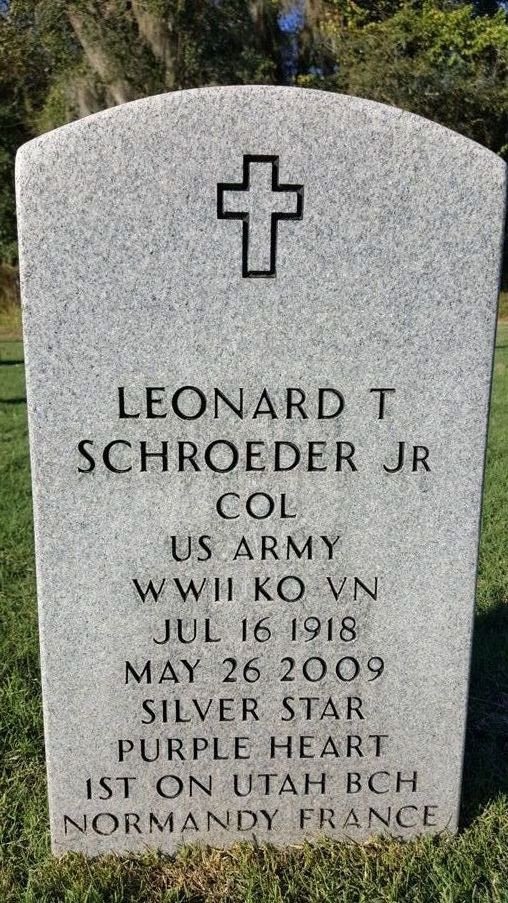
Why His Name Isn’t Commonly Remembered
This part really gets to me — because someone like Leonard “Max” Schroeder Jr., who was literally the first Allied soldier on D-Day, should be a household name.
But he wasn’t the kind of man who chased recognition. He didn’t write books or give interviews for attention. After the war, he quietly returned to duty and continued his military service. He led with humility, not headlines.
And honestly, D-Day was such a massive event — with over 150,000 troops involved — that it became hard for individual stories to stand out. Names like Eisenhower and Patton rose to the surface, but men like Schroeder? They got lost in the noise, even if they were the first ones to walk into hell.
That’s why I believe stories like this matter. If we don’t talk about the ones who led the way, who risked everything and kept going anyway, their memory fades. And that would be a tragedy all over again.
Just like we highlight lesser-known moments from history — whether it’s kids at play in the Lower East Side in 1963 or a grocery store snapshot from the 1970s — we have to do the same for men like Schroeder. Because those small, human details are what bring history to life.

The Legacy of Schroeder’s D-Day Bravery
When you really sit with the fact that the first Allied soldier on D-Day led the charge into Nazi-occupied France, it hits you differently. Max Schroeder didn’t just step off that boat — he carried the weight of the entire invasion on his shoulders, if only for a few seconds. He went first so thousands could follow.
And they did.
Schroeder’s bravery helped establish a foothold at Utah Beach — a critical piece of the invasion that would lead to the liberation of France and, eventually, the fall of Nazi Germany. That first step mattered more than most people realize.
His quiet courage reminds me of other forgotten chapters we’ve shared here — like the final days of the Titanic musicians who kept playing as the ship went down. These aren’t just footnotes. These are people who shaped the outcome by standing firm when it counted most.
Schroeder’s story is proof that not all heroes make headlines. Some simply do what needs to be done and let history catch up later.
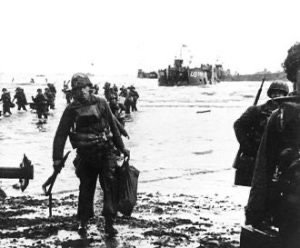
Life After the War
After D-Day and decades of military service, Leonard “Max” Schroeder Jr. didn’t go looking for parades or interviews. He stayed in the Army, eventually retiring as a colonel after more than 30 years of service. He lived a life rooted in service and family — not fame.
He and his wife Margaret raised four children. He stayed active in his community. And though he was awarded the Silver Star, Bronze Star, and Purple Heart, he rarely talked about what happened that morning on the beach.
When he passed away in 2009 at the age of 90, he left behind more than a military record — he left behind a legacy of quiet strength, duty, and resilience.
And yet, when you look at most D-Day articles or documentaries, his name is missing. That’s why I felt this story needed to be told. Because the man who was first to land on D-Day deserves more than a footnote.
He deserves a spotlight — not just for what he did, but for how he lived after.

Honoring His Memory Today
It honestly surprises me that there aren’t more monuments or tributes dedicated specifically to Leonard “Max” Schroeder Jr., the first Allied soldier on D-Day. Sure, there are museums, plaques, and beaches lined with flags — and they all matter — but his name rarely makes the front page in any of them.
There’s no Hollywood movie about him. No national holiday in his name. Just quiet mentions in military records and the memory of those who served beside him. He did receive honors during his life, and his family carries on his legacy with pride, but the broader world? Still catching up.
It reminds me of other powerful but lesser-known stories we’ve highlighted — like the legacy of Alfred Vanderbilt’s sacrifice on the Lusitania or Firebug’s 17 years in solitary at Missouri State Penitentiary. These aren’t just facts. They’re lives that shaped history.
The good news? We don’t need permission to honor him. By sharing his story, remembering his name, and teaching others, we keep his bravery alive. And that matters.
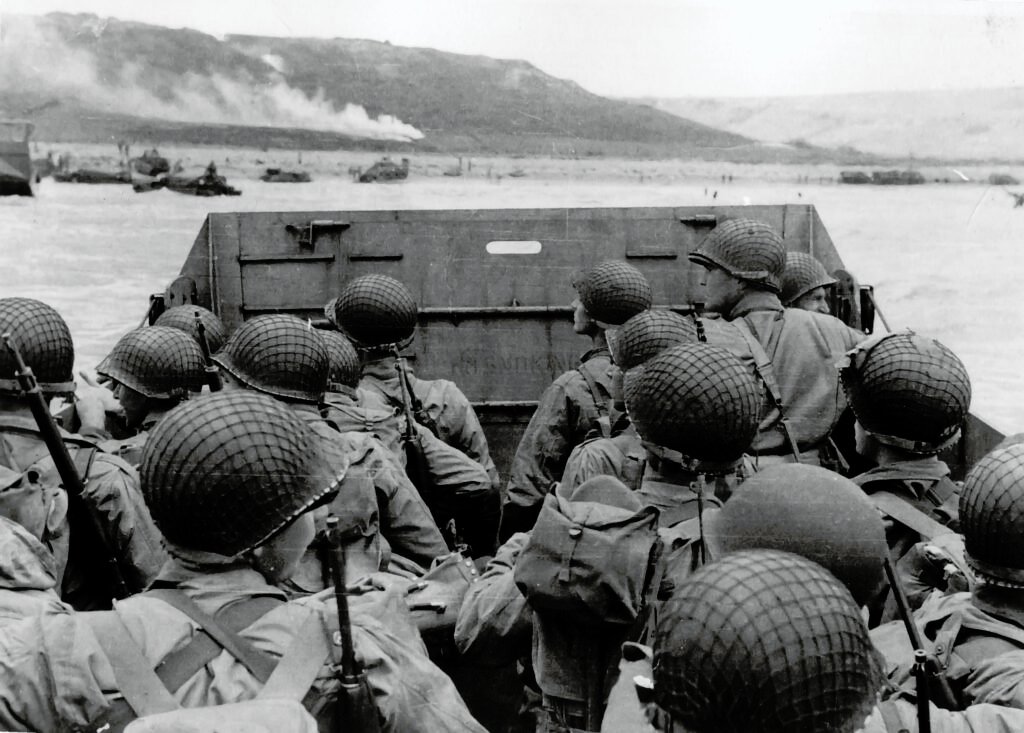
What We Can Learn From Max Schroeder
Max Schroeder didn’t ask to be the first Allied soldier on D-Day. He didn’t ask for attention. He didn’t wait for someone else to go first. He simply did what had to be done — because that’s what leaders do.
There’s something timeless about that kind of courage. It wasn’t loud or boastful. It didn’t come with camera crews or headline stories. It came from character, training, and heart. And in a world where people are quick to chase attention, Schroeder reminds us that real impact doesn’t need a spotlight.
When I think about the legacy of D-Day, it’s easy to get lost in the numbers. The maps. The massive scale. But it all started with one man… one step… into the surf.
We should all know his name.
We should all remember his story.
And we should all carry a bit of his courage forward — even in our own small battles.
As an Amazon Associate we earn from qualifying purchases through some links in our articles.


